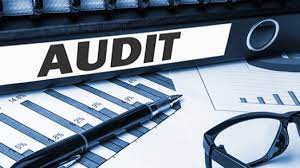Discuss the relevance and reliability of audit evidence
Introduction:
In the domain of auditing, the concepts of relevance and reliability stand as the twin pillars upon which the integrity and effectiveness of an audit rest. Auditors, particularly Certified Internal Auditors (CIAs), rely heavily on audit evidence to form their conclusions and opinions. However, the value of this evidence is intrinsically tied to its relevance to the audit objectives and its reliability as an accurate representation of the entity’s operations. This article explores the significance of relevance and reliability in audit evidence, delving into their definitions, importance, and the methods through which auditors can ensure these qualities in their audit evidence.
Defining Relevance and Reliability:
Relevance:
Audit evidence is relevant when it directly pertains to the specific audit objective or assertion being tested. It is about the appropriateness of the evidence in providing support for the conclusions auditors wish to draw. Relevance depends on the nature of the audit objective and can include considerations of materiality and the specific risks associated with the audit area.
Reliability:
Reliability refers to the degree of trustworthiness of the audit evidence. Reliable evidence is credible, accurate, and complete. It is unaffected by bias or distortion and comes from a source that is independent and knowledgeable.
The Importance of Relevance and Reliability:
Accurate Audit Opinions:
The ultimate goal of an audit is to provide an accurate opinion on the entity’s financial statements or operations. Relevance ensures that the evidence gathered directly contributes to this objective, while reliability ensures that the evidence is dependable.
Efficient Audit Process:
Focusing on relevant and reliable evidence helps in directing audit efforts effectively, avoiding unnecessary work on immaterial or unreliable information.
Stakeholder Confidence:
Stakeholders, including investors, regulators, and the public, rely on the auditor’s report. The relevance and reliability of audit evidence play a crucial role in building and maintaining their confidence in the audit’s conclusions.
Ensuring Relevance of Audit Evidence:
Understanding the Entity and Its Environment:
Auditors must have a thorough understanding of the entity and its operational context. This knowledge helps in identifying what information is relevant to the audit objectives.
Risk Assessment:
Assessing the risks associated with different areas of the entity’s operations aids in determining where relevant evidence might be found.
Materiality Considerations:
Evaluating the materiality of different aspects of the entity’s financial information helps in focusing on evidence that matters.
Ensuring Reliability of Audit Evidence:
Source Evaluation:
Evidence obtained from independent sources outside the entity is generally more reliable than evidence obtained internally.
Corroboration:
Seeking corroborating evidence from different sources or through different methods enhances reliability.
Auditor Expertise and Skepticism:
Professional expertise and a mindset of skepticism enable auditors to critically assess the credibility of evidence.
Balancing Relevance and Reliability:
Auditors often face the challenge of balancing the relevance and reliability of evidence. In some cases, highly relevant evidence may not be the most reliable. Auditors must use their professional judgment to determine how to achieve the best balance, considering the nature and objectives of the audit.
Technological Influence:
Advancements in technology, particularly in data analytics, have transformed the process of gathering and evaluating audit evidence. While technology can enhance the efficiency of this process, auditors must remain vigilant regarding the relevance and reliability of the data and information generated through technological means.
Challenges in Ensuring Relevance and Reliability:
Complexity of Business Transactions:
Complex transactions may make it difficult to ascertain the relevance and reliability of evidence.
Time Constraints:
Under time pressures, auditors might struggle to thoroughly evaluate the relevance and reliability of evidence.
Access to Information:
Restricted access to information can limit the auditor’s ability to obtain relevant and reliable evidence.
Best Practices:
To overcome these challenges, auditors should:
Plan effectively:
Good planning includes understanding the entity’s business, identifying key risk areas, and determining materiality levels.
Leverage technology wisely:
Use data analytics and other technological tools judiciously to enhance the collection and analysis of evidence.
Continuous Learning:
Stay updated on auditing standards, business practices, and technological advancements.
Conclusion:
In conclusion, the relevance and reliability of audit evidence are foundational to the credibility and effectiveness of an audit. They guide auditors in collecting appropriate evidence and forming sound judgments. Through a combination of thorough planning, effective risk assessment, judicious use of technology, and a mindset of professional skepticism, auditors can ensure that their evidence meets these critical criteria, thereby upholding the quality and integrity of their audit work.
